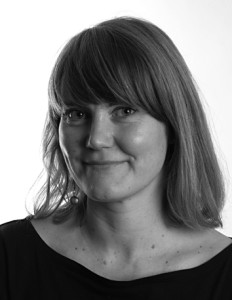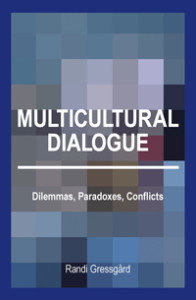 As cross-cultural migration increases democratic states face a particular challenge: how to grant equal rights and dignity to individuals while recognizing cultural distinctiveness. In response to the greater number of ethnic and religious minority groups, state policies seem to focus on managing cultural differences through planned pluralism. This book explores the dilemmas, paradoxes, and conflicts that emerge when differences are managed within this conceptual framework. After a critical investigation of the perceived logic of identity, indicative of Western nation-states and at the root of their pluralistic intentions, the author takes issue with both universalist notions of equality and cultural relativist notions of distinctiveness. However, without identity is it possible to participate in dialogue and form communities? Is there a way out of this impasse? The book argues in favor of communities based on nonidentitarian difference, developed and maintained through open and critical dialogue.
As cross-cultural migration increases democratic states face a particular challenge: how to grant equal rights and dignity to individuals while recognizing cultural distinctiveness. In response to the greater number of ethnic and religious minority groups, state policies seem to focus on managing cultural differences through planned pluralism. This book explores the dilemmas, paradoxes, and conflicts that emerge when differences are managed within this conceptual framework. After a critical investigation of the perceived logic of identity, indicative of Western nation-states and at the root of their pluralistic intentions, the author takes issue with both universalist notions of equality and cultural relativist notions of distinctiveness. However, without identity is it possible to participate in dialogue and form communities? Is there a way out of this impasse? The book argues in favor of communities based on nonidentitarian difference, developed and maintained through open and critical dialogue.
Randi Gressgård is a Senior Researcher at the Centre for Women’s and Gender Research (SKOK) at the University of Bergen. She is also affiliated with the research unit International Migration and Ethnic Relations (IMER) in Bergen. Her research interests focus on minority research, gender studies, and philosophy of science. Her publications include Fra identitet til forskjell [From Identity to Difference] (Spartacus/Scandinavian Academic Press, 2005) and Kjønnsteori[Gender Theory] (co-ed., Gyldendal Akademisk, 2008). Read more…
Religious traditions and muslim youth in europe
Christine M. Jacobsen (UiB/Uni Rokkansenteret)
Jonas Otterbeck (University of Lund)
Synnøve Bendixsen (SKOK/Uni Rokkansenteret)
A major question regarding Islam in Europe concerns the religiosity of “Muslim youth” – a category currently epitomizing both the fears and hopes of multicultural Europe. At this seminar, researchers working in 3 European countries look at how Islamic traditions are engaged and reworked by young people, born and educated in European societies, and discuss the modes of religiosity that are shaped in a context of international migration, globalization, and secular modernity.
Christine M. Jacobsen launches her new book Islamic Traditions and Muslim youth in Norway in conversation with Jonas Otterbeck, the author of Samtidsislam: unga muslimer i Malmö och Köpenhamn and Synnøve Bendixsen, the author of “It’s like doing SMS to Allah” Young Female Muslims Crafting a Religious Self in Berlin.
Seminar and book launch.
Organised in collaboration with Department of Social Anthropology, UiB.
Time: Friday 21 January, 13.15-16.00.
Venue: Uni Rokkansenteret, Nygårdsgaten 5, 6. etg (5th Floor)
«Mobilitet, moral og migrasjon: familisme – begrepet i norske og italienske kontekster.»
Seminaret tar for seg hvordan middelhavslandenes familisme – begrep konstrueres og erfares i migrasjons-kontekster blant nordmenn i Italia og italienere i Norge. Dagens familisme utfordres både av «post-moderne” endringer i familie-strukturen, slik som lav fertilitet og stigende skilsmisse-rater, og av finanskrise og migrasjon.I Sør-Europa eksisterer lav fertilitet side om side med tradisjonelle omsorgs-organiseringer og parallelt med kontant-tunge velferdsprogrammer og begrenset produksjon av tjenester for de unge og de eldre. Den sentrale oppfatningen i komparative studier av relasjonen mellom familie og velferd er at velferdsstatene baserer politikken på en «tatt-for-gitt» holdning til en kjønnstradisjonell familie-institusjon, og denne kulturelle forutsetningen sementerer de tradisjonelle familie-strukturene. Men i hvilken grad er familiestrukturer og kulturelle og sosiale normer og verdier bundet sammen med idealtypiske regimer og nye migrasjonsmønstre?Nyere forskning viser til at sør-europeiske kvinner drømmer om den nordiske velferdsstaten eller en stat som organiserer familie -og arbeidsbalansen bedre. De vil ha tilgang på flere og bedre offentlige omsorgstjenester. Nordiske velferdsstater framstår som reneste paradiser for kvinner i Italia, og definitivt som et ideal, hevder samfunnsforskere. På den andre siden ser vi at mens italienere drømmer om velferd og arbeid, drømmer nordmenn om mer familieliv. En av de norske informantene i mitt prosjekt sier at hennes drøm er «å få til et italiensk familieliv kombinert med et norsk arbeidsliv». Hvordan er forbindelsen mellom familie-strukturer og familie-verdier? Hvordan er de relatert til mobilitet, moral og migrasjon?
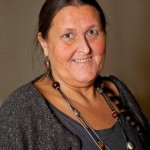 Lise Widding Isaksen er professor i sosiologi på Universitetet i Bergen. Hun jobber for tiden med prosjektene 1) «Mobilitet, moral og migrasjon: en studie av familiekulturer i Norge og Italia» , 2) «Polish Female Migrants and Their Families: A Study of Care Deficits» og 3) «Welfare Models, Demographic Patterns and Family Strategies in the Context of the Financial Crisis in Spain»
Lise Widding Isaksen er professor i sosiologi på Universitetet i Bergen. Hun jobber for tiden med prosjektene 1) «Mobilitet, moral og migrasjon: en studie av familiekulturer i Norge og Italia» , 2) «Polish Female Migrants and Their Families: A Study of Care Deficits» og 3) «Welfare Models, Demographic Patterns and Family Strategies in the Context of the Financial Crisis in Spain»
Siste publikasjoner:
Lise Widding Isaksen, 2010 (ed): Global Care Work. Gender and Migration in Nordic Societies. Nordic Academic Press, Lund, Sverige
Lise Widding Isaksen (2012) “Transnational Spaces of Care: Migrant Nurses in Norway.” In Social Politics, International Studies in Gender, State and Society, vol. 19, number 1, spring 2012, p.58-78, Oxford University Press, Oxford
“Children Left Behind” i samarbeid med Uma Devi og Arlie R. Hochschild i Hochschild, Arlie R., 2013: «So How’s the Family» and other essays», University of California Press, Berkeley
Communicating Migration Seminar Series IMER Bergen spring and autumn 2014
The IMER seminar series for 2014 will cover how migration and ethnic relations are communicated in every-day encounters, in mass and social media, in politics and in teaching at the universities. Has the way people talk about migration and migrants in different social contexts changed over time, and in which ways has it changed? How does migration theory and research fit in with other topics and theories in the social sciences, and how do results from migration research inform public debate and policy development? Communicating migration will be discussed from various angles in our seminar series on international migration and ethnic relations during spring and autumn 2014. We welcome papers that touch upon this broad theme from different angles. Historical analyses of change over time in regard to politics and public debate, research foci and disciplinary concerns are specifically welcomed. The seminar series will end with a two-day conference in October/November 2014.
The Children of the Revolution: Reflections on Chinese London and how to Theorise these New Forms of Migration
This paper explores some of the London data from a three-city investigation of migration. The other two cities are Beijing and Hong Kong, and in each city we are exploring young (23-39) graduate migrants from the other two cities in order to understand how global mobility features in young professionals’ life and career planning. Little has been written about UK migrants in Hong Kong and Beijing, and the existing literature on Chinese migrants in London is centred on long-term (often depicted as poor and illegal) migrants from Hong Kong. Such studies do not begin to capture the lives of the new young migrants, many of whom are from Mainland Chinese cities, who must navigate new border restrictions favouring the wealthy and the highly talented. The paper will explore some of the challenges to existing migration theory these young urban migrants pose.
Caroline Knowles
 Caroline Knowles is Professor of Sociology and former director of the Centre for Urban and Community Research (CUCR) at Goldsmiths, University of London. She is known for her work with artists and photographers exploring the intersections between art and sociology in urban social research. Following her interest in materials and translocality she has just completed the biography of a pair of flip-flop sandals funded by the Leverhulme Trust with Singapore artist Michael Tan. Flip-Flop: A Journey Through Globalisation’s Backroads will be published in May by Pluto Press. Following her interests in migration she is also currently researching the Beijing, London, Hong Kong circuit travelled by young migrants in these three cities in collaboration with Ho Wing Chung at the City University of Hong Kong. She is the author of many books and papers on cities, ethnicity, migration and mobilities including Hong Kong: Migrant Lives, Landscapes and Journeys (2009) University of Chicago Press with US photographer and Sociologist Douglas Harper.
Caroline Knowles is Professor of Sociology and former director of the Centre for Urban and Community Research (CUCR) at Goldsmiths, University of London. She is known for her work with artists and photographers exploring the intersections between art and sociology in urban social research. Following her interest in materials and translocality she has just completed the biography of a pair of flip-flop sandals funded by the Leverhulme Trust with Singapore artist Michael Tan. Flip-Flop: A Journey Through Globalisation’s Backroads will be published in May by Pluto Press. Following her interests in migration she is also currently researching the Beijing, London, Hong Kong circuit travelled by young migrants in these three cities in collaboration with Ho Wing Chung at the City University of Hong Kong. She is the author of many books and papers on cities, ethnicity, migration and mobilities including Hong Kong: Migrant Lives, Landscapes and Journeys (2009) University of Chicago Press with US photographer and Sociologist Douglas Harper.
Communicating Migration Seminar Series IMER Bergen spring and autumn 2014
The IMER seminar series for 2014 will cover how migration and ethnic relations are communicated in every-day encounters, in mass and social media, in politics and in teaching at the universities. Has the way people talk about migration and migrants in different social contexts changed over time, and in which ways has it changed? How does migration theory and research fit in with other topics and theories in the social sciences, and how do results from migration research inform public debate and policy development? Communicating migration will be discussed from various angles in our seminar series on international migration and ethnic relations during spring and autumn 2014. We welcome papers that touch upon this broad theme from different angles. Historical analyses of change over time in regard to politics and public debate, research foci and disciplinary concerns are specifically welcomed. The seminar series will end with a two-day conference in October/November 2014.
Mistillitens migrasjon: Europeisk sør-nord mobilitet i kjølvannet av krisa
Tema for innlegget er den nye Europeiske sør-nord migrasjonen. Den empiriske analysen er basert på dybdeintervjuer med noen av dem som har reist fra Spania til Norge etter kriseåret 2008. Innlegget vil belyse hvordan sør-nord migrasjonen i kjølvannet av krisa er mer enn en desperat flukt fra arbeidsledighet i hjemlandet. Den vidtrekkende mistilliten til det politiske systemet og følelsen av en dyptgripende håpløshet i hjemlandet er viktige migrasjonsfaktorer i tillegg til jobbmuligheter for dem som kommer til Norge.
Susanne Bygnes (phd) er postdoktor ved universitetet i Bergen. Hun leder det fireårige prosjektet Labour Migration in Uncertain Times: Migration from Spain to Norway after 2008, finansiert av forskningsrådets VAM-program. Hun har publisert en rekke internasjonale artikler på tema som mangfold og likestilling, blant annet Ambivalent Multiculturalism (2012) i tidsskriftet Sociology.
IMER Lunch: Astrid Ouahyb Sundsbø – Social mixing policies: What You Want and What You Get
In the public debate and contemporary social policies in Norway as well as in other countries, concentrations of “immigrants” in certain areas of a city are considered to be unfortunate and something which needs to be fought against (see i.e. Gakkestad 2003; Akerhaug 2012). It is anticipated that spatial concentrations of “immigrants” enforces the social isolation of “immigrants” and triggers criminal activities, among other aspects. This becomes very obvious when a “high percentage of immigrants” in an area serves as basis for referring to that area as a “ghetto” or “insecure” (see i.e. Sæter 2005; Vassenden: 2007; cf. Akerhaug 2012).
In this lunch seminar, the idea of social mixing, which is not just common in the general public debate but also a manifested major urban policy and planning goal (Sæter & Ruud 2005; Huse, Sæter & Aniksdal 2010; cf. Musterd 2005) will be discussed. By using some illustrations both from the academic debate as well as own empirical work, it is shown that it is necessary to be critical about this concept.
It is referred to literature arguing that there is a lack of empirical evidence showing that the residential segregation of “immigrants” has any effect at all, for instance on “integration” and crime (for instance Musterd 2005; Galster 2007; Lees 2008). Furthermore, it is discussed that the imagination of social mixing as an ideal way to tackle the “multicultural challenge” might be founded on a highly problematic understanding of “immigrants“ and their norms and values as inherently “bad” (cf. Eriksen 1996: 51). This is shown by drawing on statements from interviews with members from the majority population residing in Oslo.
Astrid Ouahyb Sundsbø
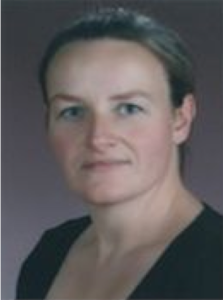 Astrid Ouahyb Sundsbø (PhD) is a postdoctoral research fellow at the Georg-Simmel Center for Metropolitan Studies in Berlin. She holds a doctoral degree in sociology from the Humboldt-University of Berlin (2012). From 2012-2014 she worked as a postdoctoral researcher at the Center for a Sustainable University at the University of Hamburg. Her main fields of research compromise: Social inequality, residential segregation in cities, migration and interethnic relations. Her most recent publication is Grenzziehungen in der Stadt. Ethnische Kategorien und die Wahrnehmung und Bewertung von Wohnorten (Springer VS, 2014) where it is discussed whether ethnic boundary making on the side of the majority population could be a possible explanation for the residential concentration of immigrants in Berlin and Oslo.
Astrid Ouahyb Sundsbø (PhD) is a postdoctoral research fellow at the Georg-Simmel Center for Metropolitan Studies in Berlin. She holds a doctoral degree in sociology from the Humboldt-University of Berlin (2012). From 2012-2014 she worked as a postdoctoral researcher at the Center for a Sustainable University at the University of Hamburg. Her main fields of research compromise: Social inequality, residential segregation in cities, migration and interethnic relations. Her most recent publication is Grenzziehungen in der Stadt. Ethnische Kategorien und die Wahrnehmung und Bewertung von Wohnorten (Springer VS, 2014) where it is discussed whether ethnic boundary making on the side of the majority population could be a possible explanation for the residential concentration of immigrants in Berlin and Oslo.
Redigert av Christine Jacobsen, Synnøve Bendixsen, Karl Harald Søvig
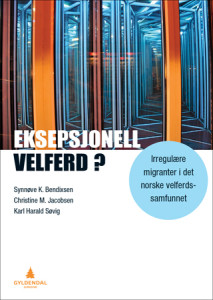 Irregulære immigranter har på noen områder full tilgang til velferdsytelser, men på mange områder er tilgangen svært begrenset enten i form av rettsregler eller andre barrierer. Denne antologien undersøker forholdet mellom rettslig rammeverk, institusjonell praksis og hvordan irregulære migranter selv erfarer sin situasjon.
Irregulære immigranter har på noen områder full tilgang til velferdsytelser, men på mange områder er tilgangen svært begrenset enten i form av rettsregler eller andre barrierer. Denne antologien undersøker forholdet mellom rettslig rammeverk, institusjonell praksis og hvordan irregulære migranter selv erfarer sin situasjon. Med en unik kombinasjon av juridisk og antropologisk blikk, går boken regelverket nærmere i sømmene, drøfter gatebyråkraters utfordringer og hverdagslivet til irregulære migranter og deres barn.
Hvilke regelverk får konsekvenser for irregulære migranters levevilkår? Hvordan blir dette regelverket forstått og etterfulgt av gatebyråkrater? Og hvordan blir hverdagslivet til irregulære migranter og deres barn påvirket av regelverket og dets fortolkning?
Denne boken er aktuell for velferdsprofesjoner som møter irregulære migranter som en del av sin yrkesutøvelse. Både leger, sykepleiere, helsesekretærer, lærere, helsesøstre, skolerådgivere, sosialarbeidere, sosionomer og barnevernspedagoger vil ha god nytte av Eksepsjonell velferd? Irregulære migranter i det norske velferdssamfunnet. Boken retter seg også mot frivillige organisasjoner som jobber med ulike aspekter ved migranters situasjon i Norge og andre som er engasjert i temaet.
The populist radical right has emerged as the spearhead of a larger renationalization process directed against positions of global and European integration. Based on anthropological fieldwork in the postindustrial towns of Doncaster (South Yorkshire, UK) and the Hungarian town of Ózd in 2015, the paper examines the various historical, material and socio-economic factors in the rise of Ukip (United Kindom Independence Party) and the extreme right-wing Jobbik (Movement for a Better Future).
In their politics of fear, minorities and migrants are marked as posing cultural-religious threats to communal harmony and the nation-state. Through participant observation and interviews with Ukip and Jobbik politicians and supporters, the paper examines how knowledge about ‘threatening others’ is produced, circulated and contested.
 Dr. Cathrine Thorleifsson holds a PhD in Social Anthropology from the London School of Economics and Political Science (2012). Her chief theoretical interests lie in anthropological approaches to the study of nationalism, migration, borders and xenophobia.
Dr. Cathrine Thorleifsson holds a PhD in Social Anthropology from the London School of Economics and Political Science (2012). Her chief theoretical interests lie in anthropological approaches to the study of nationalism, migration, borders and xenophobia.
Welcome! A light lunch will be served.
About the Seminar series:
Migration responses
Debating the current refugee crisis in Europe
The IMER Bergen Seminar series for the spring of 2016 will discuss a wide range of responses in the wake of the current migration crisis. How can the theoretical and empirical research currently being conducted on migration, ethnic relations, peace and conflict contribute to understanding the multi-faceted landscape of politics, boundaries and everyday lives of the refugee crisis?
Illustration: Wallpapercave
Hip hop music and the forging of civic bonds among minority youth in Norway
A vast body of research documents that media coverage of ethnic minorities in Norway is systematically imbalanced and problem oriented, which in turn engenders a sense of exclusion. At the same time, hip hop music and artists are today regular fixtures in various media formats, and a genre that comprises a number of prominent performers of multi-cultural background.
Set against the backdrop of the exclusionary effects of news media representations, this interview study of a group of minority youth makes evident that mass mediated hip hop music is for them taken to entail public representation of minority experiences and sensibilities that engender a sense of democratic inclusion.
By combining recognition theory and reception theory, Nærland shows how hip hop-related media coverage is experienced to involve a positive affirmation of minority identity that also contributes to the formation of civic identity and affinities. The study argues that musical media events constitute ‘moments of recognition’ where dynamics of recognition is intensified.
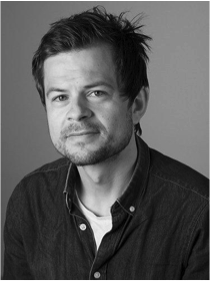 Nærland further argues that recognition theory makes up a valuable supplementary framework for our theoretical understanding of the civic dimensions of media reception, and the role of popular music therein.
Nærland further argues that recognition theory makes up a valuable supplementary framework for our theoretical understanding of the civic dimensions of media reception, and the role of popular music therein.
Welcome! A light lunch will be served.
About the Seminar series:
Migration responses
Debating the current refugee crisis in Europe
The IMER Bergen Seminar series for the spring of 2016 will discuss a wide range of responses in the wake of the current migration crisis. How can the theoretical and empirical research currently being conducted on migration, ethnic relations, peace and conflict contribute to understanding the multi-faceted landscape of politics, boundaries and everyday lives of the refugee crisis?
In recent years, a large number of Syrian refugees have settled in Europe. In the media, most of the debate concerning these refugees has been about how they impact their host societies. But how does this large Syrian diaspora impact politics in Syria itself?
For this IMER lunch seminar, we will be joined by Amany Selim and Espen Stokke, PhD candidates at sociology and comparative politics at UiB. They both do research projects where they explore the engagement of Syrian diaspora activists, and how these activists try to make a difference in the homeland. With their work on the Syrian case, they are hoping to contribute to the growing body of literature that attempts to bridge social movement theory and diaspora politics.
In the presentation, Selim and Stokke will give a brief overview of the field: What do we know about the activism of the Syrian diaspora? They will also present their own projects, and what they wish to add to the field.

